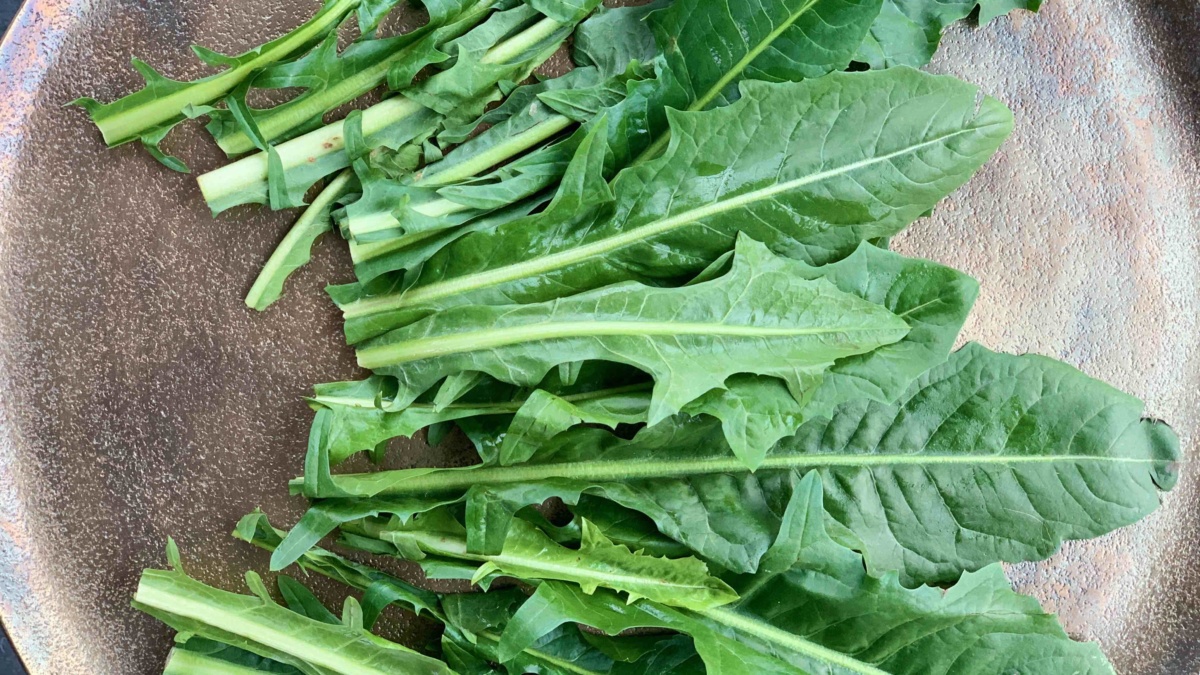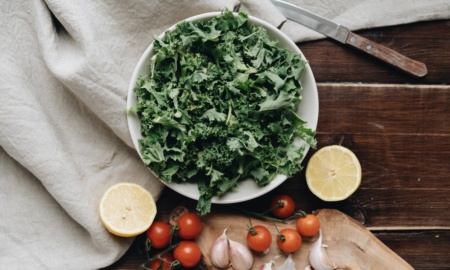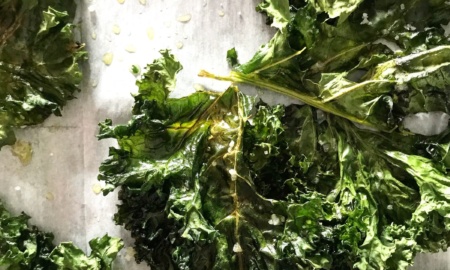
When we think of herbs in the kitchen, we usually think of the spices that impart the wonderful variety of flavors to our foods that let our taste buds – and brains – know when we're eating Italian, Mexican, Indian, or Ethiopian fare, for example, each so unique in taste. Spices have played such an important role in human history that entire trade routes were created to make sure people had access to them. Think Marco Polo. Salt was so highly valued that soldiers and others were paid in it – hence the word salary derives from the word salt.
As an herbalist and natural foodie, I extend my use of herbs in the kitchen beyond spices to include edible medicinal plants. One of my favorites is the humble dandelion green. Dandelion greens are not for the faint of taste. They are more bitter than other greens. Bitter is a flavor that most Americans shun, accustomed as we are to sugar. Given that the average American has as many as 20 or more teaspoons of sugar daily, and kids even more than that, it's no surprise that bitter seems – well, bitter. Interestingly, though, some plants that have strong poisons are also bitter, so it's natural for us to be cautious when we taste something bitter. The bitter taste is also one of the most effective digestive stimulants; this is in part, why coffee gets you going (and I don't mean energy-wise). The bitter taste gets your stomach juices stimulated, tells your gall bladder to do its work, and this in turn improves bowel regularity. Lack of the bitter flavor in our diets is a modern development – and probably not a great one for our digestion. Our paleo ancestors ate plenty of bitter foods. Likely daily, in fact. Traditional and more wild-type greens in the diet are also probably one of the health secrets that make what is called the Mediterranean diet so healthful.
But unless you're a black coffee lover or prefer 92% dark chocolate over sweeter percentages, the taste of these greens may have to grow on you a bit, and I don't usually expect most kids to be jumping up and down over their taste. I promise, they are worth a try, and since I've been cooking with them for over 30 years, I know how to minimize the bitter, which I do in the recipe below.
Dandelion greens are easy to prepare, usually come already washed so really just require a rinse and chopping before tossing them into the skillet. They cook quickly – think spinach cooking time – and are super-nutrient rich, particularly in minerals such as potassium and calcium. They are also high in vitamin C and vitamin K. (If you start to include any greens into your diet regularly and are on blood thinners, you may need to adjust your medication dose).
Now before you go out and start harvesting dandelion leaves from your lawn as a form of culinary-landscape multi-tasking (weeding and grocery harvesting at the same time!), let me warn you that while those dandelion greens are quite edible (unless they are growing near the road, in or near a lawn that has been treated with pesticides, herbicides, or fertilizer, or lest you dog likes to take a leak on them!), they are much more bitter and tough than the kind you'll find in the autumn at your local farmer's market or cool grocer. While I have harvested my own leaves from the wild, I prefer the kind I can cultivate or purchase cultivated. And that's what I use in this delicious recipe below.
Sautéed Dandelion Greens with Cherry Tomatoes & Garlic
Print Recipe
Ingredients
- 1 bunch of dandelion leaves chopped into 1-2 inch pieces
- 1 pint of cherry tomatoes cut in half
- 2 cloves of fresh garlic minced
- 2 tbsp olive oil or 1 TBs butter
- Salt or tamari
- Optional squeeze of fresh lemon juice.
Instructions
- Heat your oil in a skillet, cast iron if you have it, or stainless steel.
- Add the dandelion greens, sautéeing until soft and shiny, about 2-3 minutes.
- Add the garlic and sauté for another minute.
- Add the cherry tomatoes and sauté until they begin to soften, about 3 minutes.
- Turn off the heat and salt to taste; I appreciate the savory flavor tamari gives.
- Try plain or if you prefer, with a squeeze of fresh lemon juice.
Notes
To your health!

